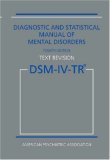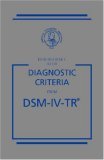What Roles Do the Different Personalities Play
The distinct personalities may serve diverse roles in helping the individual cope with life's dilemmas. For instance, there's an average of two to four personalities present when the patient is initially diagnosed. Then there's an average of 13 to 15 personalities that can become known over the course of treatment. While unusual, there have been instances of dissociative identity disorder with more than 100 personalities. Environmental triggers or life events cause a sudden shift from one alter or personality to another.
Who Gets Dissociative Identity Disorder
While the causes of dissociative identity disorder are still vague, research indicates that it is likely a psychological response to interpersonal and environmental stresses, particularly during early childhood years when emotional neglect or abuse may interfere with personality development. As many as 99% of individuals who develop dissociative disorders have recognized personal histories of recurring, overpowering, and often life-threatening disturbances at a sensitive developmental stage of childhood (usually before age 9). Dissociation may also happen when there has been insistent neglect or emotional abuse, even when there has been no overt physical or sexual abuse. Findings show that in families where parents are frightening and unpredictable, the children may become dissociative.
How Is Dissociative Identity Disorder Diagnosed
Making the diagnosis of dissociative identity disorder takes time. It's estimated that individuals with dissociative disorders have spent seven years in the mental health system prior to accurate diagnosis. This is common, because the list of symptoms that cause a person with a dissociative disorder to seek treatment is very similar to those of many other psychiatric diagnoses. In fact, many people who have dissociative disorders also have secondary diagnoses of depression, anxiety, or panic disorders.
The DSM-5 provides the following criteria to diagnose dissociative identity disorder:
Two or more distinct identities or personality states are present, each with its own relatively enduring pattern of perceiving, relating to, and thinking about the environment and self.
Amnesia must occur, defined as gaps in the recall of everyday events, important personal information, and/or traumatic events.
The person must be distressed by the disorder or have trouble functioning in one or more major life areas because of the disorder.
The disturbance is not part of normal cultural or religious practices.
The symptoms can not be due to the direct physiological effects of a substance (such as blackouts or chaotic behavior during alcohol intoxication) or a general medical condition (such as complex partial seizures).
Are There Famous People With Dissociative Identity Disorder
Famous people with dissociative identity disorder include retired NFL star Herschel Walker, who says he's struggled with dissociative identity disorder for years but has only been treated for the past eight years.
Walker recently published a book about his struggles with dissociative identity disorder, along with his suicide attempts. Walker talks about a feeling of disconnect from childhood to the professional leagues. To cope, he developed a tough personality that didn't feel loneliness, one that was fearless and wanted to act out the anger he always suppressed. These alters could withstand the abuse he felt; other alters came to help him rise to national fame. Today, Walker realizes that these alternate personalities are part of dissociative identity disorder, which he was diagnosed with in adulthood.
How Common Is Dissociative Identity Disorder
Statistics show the rate of dissociative identity disorder is .01% to 1% of the general population. Still, more than a third of people say they feel as if they're watching themselves in a movie at times, and 7% percent of the population may have undiagnosed dissociative disorder.
What's the Recommended Treatment Plan for Dissociative Identity Disorder
While there's no cure for dissociative identity disorder, long-term treatment can be helpful, if the patient stays committed. Effective treatment includes talk therapy or psychotherapy, hypnotherapy, and adjunctive therapies such as art or movement therapy. There are no established medication treatments for dissociative identity disorder, making psychologically-based approaches the mainstay of therapy.
|


